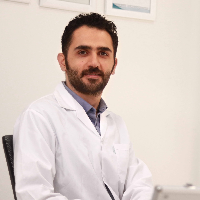The effects of high-intensity interval training on TGF-β and HSP72 gene expression in kidney tissue and selective renal serum biomarkers of type-II diabetic rats
Diabetic Kidney Disease (DKD) is one of the most significant complication of diabetes. Heat Shock Protein 72 (HSP72) and Transforming Growth Factor beta (TGF-β) are regarded as biomarkers for renoprotective strategies. High-intensity interval training (HIIT) may have beneficial effect on diabetes management. The purpose of the present study was to investigate the effects of HIIT on kidney expression of HSP72 and TGF-β in type-II diabetic (T2D) rats.
21 rats were randomly divided into three groups as follows: control (Con), diabetic (Dibt), diabetic HIIT (Dibt-HIIT). Nicotinamide and streptozotocin were used intraperitoneally for diabetes induction. The Dibt-HIIT received four-week HIIT training. 24 hours following the last training session, all animals were anesthetized. Blood samples were collected for measuring the glucose, insulin, creatinine, urea and uric acid concentrations. The left kidney was removed and homogenized for measuring of HSP72 and TGF-βgene expression (through Real-Time PCR).
Diabetes significantly increased gene expression of TGF-β and suppressed HSP-72 gene expression. Compared to Dibt group, HIIT decreased plasma glucose level but these changes were not significant. However, HIIT improved HOMA-IR (p=0.03). Creatinine change was not significant but Uric acid decreased in Dibt-HIIT group significantly (p=0.02). Also, HIIT reduced kidney expression of TGF-β and increased HSP72 expression in Dibt-HIIT group (p=0.001).
Our findings indicated that HIIT, as a non-pharmacologic approach, may have protective effect on kidney of rats with T2D.
-
The Effect of 12 Weeks of Functional Training and Different Periods of Detraining on Dynamic Balance in Elderly Men
Ali Akbarnejad, Samane Koneshlou,
Journal of Sport Sciences and Health Research, -
The Response of inflammatory and hypertrophic markers to resistance exercise in male rats
Maryam Noorshahi, Samaneh Koneshloo, Mehdi Hedayati, *, Nafiseh Aminoleslam, Javad Nemati
Journal of Sabzevar University of Medical Sciences,



